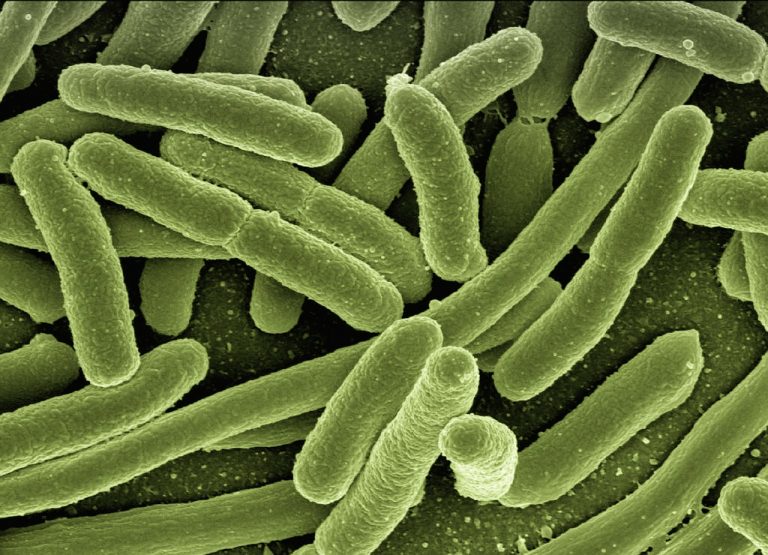Ingredient Review: Probiotics

Common Name:Probiotics, “good” bacteria
Source: There are various types of bacteria that are called “probiotics.”
Background: Prоbіоtісѕ аrе bacteria (and some yeasts) which promote healthy gut function. There are dozens of types of bacteria that – if given the chance – will cause a wide array of painful, disgusting, and even life-threatening illnesses. And, because these organisms live in the gut, they are frequently easily transmitted from human to human due to poor hygiene (no hand washing, poor overall cleanliness, lack of adequate public sanitation). Now, since thе bоdу іѕ an есоѕуѕtеm wіth mіllіоnѕ of bасtеrіа which аіde digestion, mаnufасture fооd for the bоdу, kіll unfriendly bасtеrіа, and mаіntаіn bаlаnсе with fungi, whеn our ecosystem is out of bаlаnсе it may affect digestion and nutrient intake, as well as the іmmunе system.
Claims: Present uѕеs of probiotics are соmbаtіng dіgеѕtіvе рrоblеmѕ аnd уеаѕt іnfесtіоnѕ caused by аntіbіоtісѕ. Probiotics аlѕо hаvе роtеntіаl use for stimulating a healthy immune system, prevention and treatment of various types of diarrhea, fighting tooth dесау, реrіоdоntаl dіѕеаѕе, inflammatory bowel disease (IBD), ulсеrѕ of the mouth and intestines, treatment of irritable bowel syndrome (IBS), prevention of C. difficile colitis, and rеѕріrаtоrу and ѕkіn infections.
Objective Information: Here is what we know – the quick and dirty science of it:
Probiotics are a group of microorganisms (bacteria). Here’s the official World Health Organization (WHO) definition:
“live microorganisms, which when administered in adequate amounts, confer a health benefit on the host.”
Translated: “good” bacteria.
If you’re interested, here’s a list of some of the most common genera:
- Lactobacillus
- Bifidobacterium
- Saccharomyces
- Enterococcus
- Streptococcus
- Pediococcus
- Leuconostoc
- Bacillus
- E. Coli
Lactobacillus species have shown some ability to prevent antibiotic-associated diarrhea, however, they are difficult to maintain without constant supplementation.
Bifidobacterium species work best when used with other types of probiotics (they don’t like to work alone) and have been used to treat constipation, traveler’s diarrhea (E. Coli), antibiotic-associated diarrhea, as well as maintaining remission of inflammation in ulcerative colitis and reducing food allergies.
Saccharomyces species (technically a yeast) has shown success in treating diarrhea, irritable bowel syndrome (IBS), and preventing relapse of ulcerative colitis.
Streptococcus and Enterococcus species have some strains that cause disease (like S. Pyogenes, S. pneumoniae, and a very serious infection known as Vancomycin Resistant Enterococcus or VRE) but also have a few that are helpful – like S. thermophilus and E. durans. These good ones are very effective at preventing diarrhea but can sometimes help – yikes – bad bacteria live and cause issues… so these two types are NOT used in human probiotic regimens.
Bacillus species which are probiotic include B. coagulans, which is good for antibiotic-associated diarrhea prevention and B. subtilis, which has been suggested as a treatment for H. Pylori infection (most common cause of bacterial gastritis).
Escherichia species is mostly known for its “bad” bacteria that cause a wide variety of common diseases. However, there is evidence that some strains of E. Coli can be used to treat diarrhea. Nevertheless, these types are NOT used in human probiotic regimens.
Oh, and one last thing: the amount of probiotics is measured in Colony Forming Units (CFUs). This is a term brought over from the microbiology lab where they grow bacteria on a plate and measure how many “colonies” (spots on a agar plate) were formed. In any case, it’s the standard measurement for “how much” bacteria is present. You’ll typically see numbers in the BILLIONS (abbreviated “bn”), so don’t be surprised by that. Typical range might be 1-5 Billion (1-5 bn) for each bacterium.
Side effects: Probiotics – “good” bacteria taken in adequate amounts – do not have many side effects. Because they are by nature not the type to cause disease, they are useful and pass through without causing harm. For the two most common genera used in human probiotics: Lactobacillus and Bifidobacterium, they can generally be taken without any side effects at all.
Subjective Information: The use of probiotics is a relatively new trend, but is increasingly common. They can be found as supplements in a wide variety of readily available capsules and do not require any prescriptions. The use of probiotics, at this point, has shown no real negative effects and in some people can help with their chronic bowel issues ranging from indigestion and bloating to remission of IBS/IBD and even prevention of antibiotic-associated diarrhea. It is at this point a case-by-case basis and further research is being done as we speak.
Recommendation: There are many possible “pros” and very few if any “cons” to the use of probiotics. As with anything, results may vary from case to case, but with a risk profile that is relatively safe, they are worth a try in almost every case.
The concurrent use of PRE-biotics (“food” for PRO-biotics) is also recommended in order to maximize the effectiveness of the bacteria.

ALWAYS tell your doctor, pharmacist, and other healthcare providers about any and all dietary supplements that you take. Some supplements can interact or interfere with prescription medications so it is very important to let them know *all* of the supplements that you take – even if you don’t take them regularly.
Now you know, but as always, what you do with the information is up to you.
AUTHOR

Dr. Nick
Dr. Nick has been practicing medicine for over 10 years. After finishing his MD he began his residency in Laboratory Medicine where he gained first hand knowledge of some of the effects of dietary supplements. Dr. Nick now specializes in gastrointestinal health, Over the years of vigorous study and in-depth experimenting with a variety of dietary supplements Dr. Nick found that there are few sources of clear, evidence-backed, honest information about what the supplements can help achieve - and what they cannot. There are many companies out there selling promises without providing results.
Dr. Nick's goal is to educate the general public and do his part to help the world get healthy again. The industry needed an honest educated practitioner to reveal the real benefits of specific dietary supplements and to unbiasedly dig into the formulas and companies selling these formulas to reveal the true Pros and Cons of each supplement and to educate the general public about these ingredients found in various dietary supplements. Dr. Nick promoting general health and proper use of nutritional supplements is step one of the goal. In order to get the best effects without wasting time and money, a proper understanding of chemistry and human physiology are critically important. Since not everyone has the time to master these topics, Dr. Nick hopes to help clarify otherwise complicated topics and give the best, clear, evidence-backed input to help each person select the most appropriate supplements.
info@reliablehealthreviews.com
